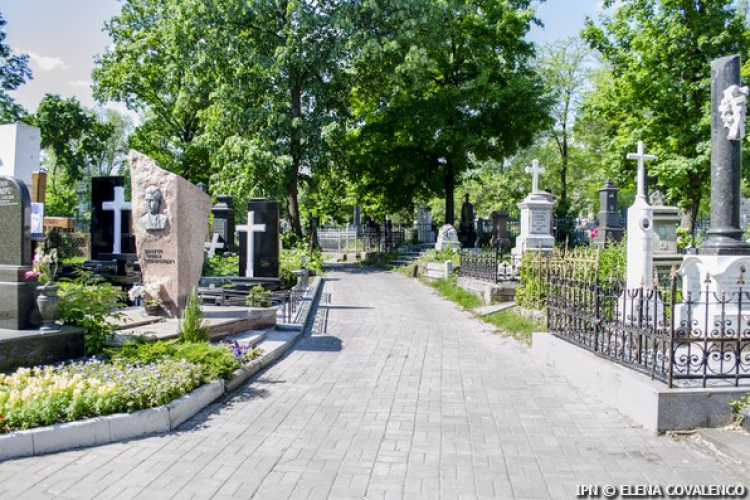
The Ministry of Culture provided clarifications about the need of approval for funeral works, after the mayor of Chisinau said that a draft law proposed by the Party of Action and Solidarity restricts the installation of funerary monuments. The Ministry's state secretary Vladimir Vornic explained the situation, stressing that the new regulations apply only to cemeteries with the status of historical monument, without affecting ordinary funeral works, IPN reports.
Contacted by IPN for a comment, Vladimir Vornic said that the execution of works in cemeteries are governed by regulations approved by a Government Decision of 1998. In 2023, clarifications and even simplifications were stipulated in the Urban Planning and Construction Code. According to them, any funerary constructions that are higher than 1.75 meters require the authorization of the local public administration. However, the regulations of the Ministry of Culture concern only the historical cemeteries protected by the state, such as the Central Cemetery on Mateevici St, where personalities of the 19th and 20th centuries are buried.
"Strict regulations are needed for historical cemeteries because they are part of our cultural heritage. For example, important historical figures are buried at the Central Cemetery in Chisinau. Therefore, any intervention must be prudent and approved by the authorities," explained Vladimir Vornic. The Ministry of Culture supports the exclusion of "Saint Lazarus" Cemetery from the Register of State-Protected Monuments, as it was created in the 1960s.
For his part, the mayor of Chisinau Ion Ceban criticized the regulations, claiming that they would impose unnecessary restrictions on citizens who want to embellish the graves. "I proposed creating a funerary monument for the PAS because this party wants to prohibit the people from installing monuments without the approval of the Ministry of Culture," said the mayor.
The Ministry's state secretary rejected the accusations, explaining that the regulations do not affect ordinary funeral works. "The people can arrange their graves without any impediment, if these are not located in a protected historical cemetery. We do not prohibit anything, but only ensure the protection of cultural heritage," said Vornic.
The Ministry of Culture emphasizes that the approval is necessary only for interventions in historical cemeteries and that the rest of the funeral works remain regulated by the already existing norms. Therefore, citizens can arrange the graves without additional restrictions, if these are not in a cemetery with the status of a historical monument.












